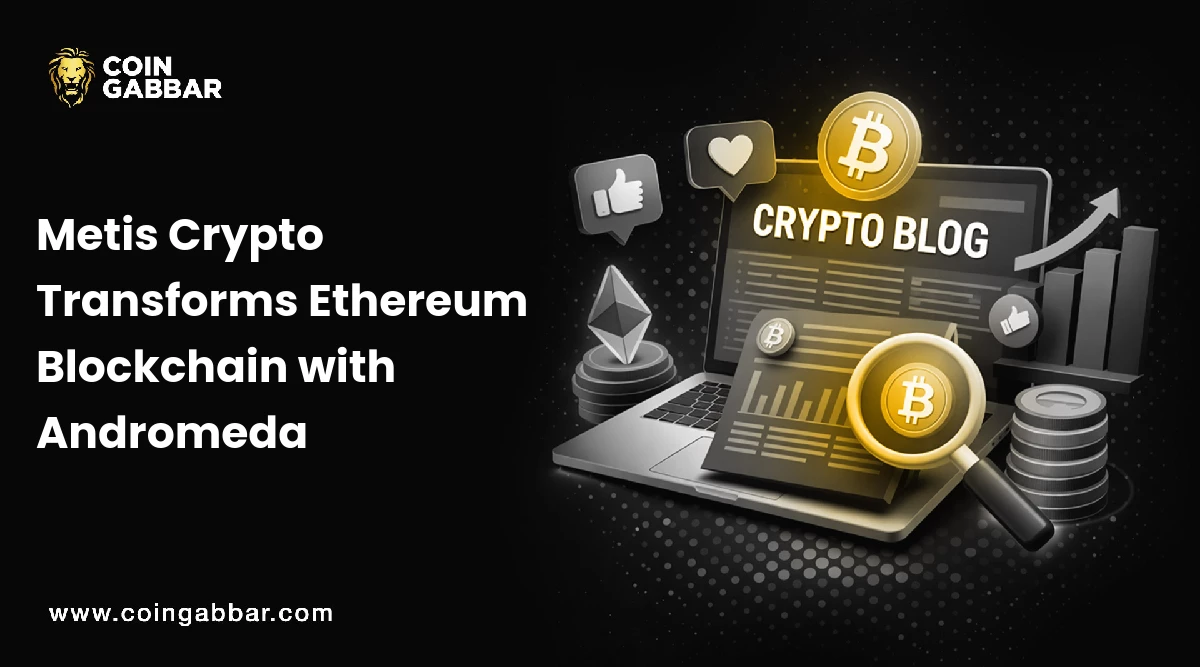
Metis Crypto Protocol is a revolutionary crypto project which is a part of Layer 2 Scaling solutions for the Ethereum Blockchain. The Metis Protocol was founded in 2019 by Elena Sinelnikova, Kevin Liu, and Yuan Su, and officially launched on November 17, 2021. The Metis Crypto Protocol transforms not only the Ethereum Blockchain it seeks to create an efficient and affordable infrastructure for the whole Crypto Ecosystem which includes Web3 Economy, Blockchain and DeFi networks.
Which problems were solved by Metis Crypto Protocol?
The Metis Crypto Protocol is a Layer 2 Scaling Solution for the problems faced by Ethereum Blockchain.
The Ethereum blockchain faces notable challenges, primarily revolving around its limited transaction processing capacity, averaging around 13 to 14 transactions per second (TPS). Users encounter escalating fees due to the blockchain's congestion during periods of heightened demand, stemming from the varying computing power required for operations and the influx of stakeholders. This congestion leads to slower transaction speeds and increased costs for users, particularly during peak times.
Layer-2 scaling solutions like the Metis protocol aim to alleviate these issues by offloading transactions to a secondary layer for processing, thus reducing congestion on the Ethereum blockchain.
Metis Crypto’s Andromeda:- Andromeda is Metis’s blockchain framework and Metis relies on Andromeda to leverage access to the Ethereum network.
NFT Bridge and Storage Solution:- Metis’ NFT bridge facilitates the seamless transfer of NFTs between the Ethereum blockchain and Metis’ Andromeda network. This feature empowers users to mint NFTs on Metis, potentially reducing minting costs, and subsequently transferring them to Ethereum. Conversely, users can mint NFTs on Ethereum and transfer them to Metis. Additionally, the Metis crypto protocol provides NFT storage through integration with the InterPlanetary File System (IPFS), a decentralized file storage system.
Framework for Decentralized Autonomous Companies: - Metis provides a technological infrastructure for the DAC, its version of a decentralized autonomous organization (DAO). Designed to address governance challenges, organizational management, and incentive alignment, the Metis DAC framework expects to enhance DAOs through reputation systems. Metis outlines that individuals wishing to join a DAC must possess the DAC's token and stake a portion of those tokens in advance. This stipulation aims to screen potential members to safeguard the organization. Members accrue reputation points by staking tokens over time, thereby maintaining their reputation within the DAC.
Polis Platform:- Metis presents Polis, a middleware platform crafted to aid developers in managing the smart contracts deployed on Metis. For end users, Polis manifests as a web wallet, documenting transaction records. Metis envisions leveraging this transaction history to potentially generate "reputation power," which could offer advantages to users engaging in collaborative efforts within DACs.
Metis Token is the governance token of Metis Crypto Protocol with a Market cap of $590.83 Million and is currently trading at $112. The Metis Token serves various functions including as the fundamental token of Andromeda Blockchain for validating and processing of transaction. It is also used as a gas fee on the Metis Andromeda network, providing users with flexibility and convenience and we can also stake $METIS Token to earn rewards.
First Ever Decentralized Sequencer - Metis became the first Ethereum Layer 2 solution to decentralize its sequencer which marks a revolutionary shift for the entire crypto ecosystem. A decentralized sequencer is a system that is run by multiple entities across different countries, instead of a single entity. This means that there is no single point of attributability and that there is more fairness in opportunities to sequence blocks. It contributes to a more transparent and stable network, making it harder for malicious actors to compromise transaction censorship/reordering, and ensuring that network operations won’t ever go offline. At present there are two (2) sequencers, both run by the Metis Foundation, operated by Artemis Finance, and Enki Protocol. Throughout the next few weeks and months, there will be more nodes, as well as LST providers, integrating the decentralized sequencer model employed by Metis.
Hercules DEX - Hercules, a community-first, capital-efficient, and flexible DEX backed by the MetisEDF, will launch on Metis on March 18. Hercules aims to become the native liquidity layer for the Metis Andromeda network. It is a sophisticated decentralized exchange (DEX) that prioritizes sticky liquidity and offers real incentives to its users. Unlike other DEXs that concentrate on transferring funds, Hercules provides innovative features that make it versatile. The platform is built to be adaptable, allowing project creators to set up exclusive rewards and ensure enough liquidity is always available for trading. Meanwhile, users can earn actual profits on their investments, contributing to the growth of the entire Metis ecosystem by increasing the funds available for trading directly on the blockchain.
In Conclusion, Metis Crypto Protocol tackles Ethereum's scalability issues with Layer 2 solutions like Andromeda, easing congestion and costs. Offering seamless NFT transfers, DAC infrastructure, and smart contract management via Polis, it enhances user experience. $METIS token serves governance and utility roles. Recent decentralization of the sequencer improves network transparency and security.

9 months ago
Crypto news and analysis

9 months ago
Best crypto news sources

10 months ago
News on crypto exchanges

10 months ago
Central bank digital currency news

10 months ago
Blockchain technology news

10 months ago
Cryptocurrency market updates

10 months ago
Cardano news
